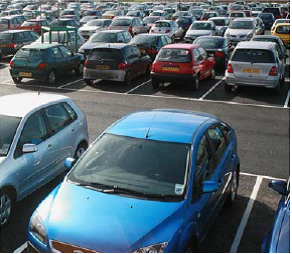
The organisation might have to manage parking for a number of reasons. Typically these include the need to:
Parking restrictions tend to be more acceptable where the alternatives are practical and attractive to use. Parking restraint without many travel plan ‘carrots’ tends to be less effective and can just increase parking pressures.
Gaining acceptance from employees for contentious parking measures is easier where there's a clear operational necessity, such as limited parking space or a land use planning requirement. In other words, car parking issues can be helpful in generating interest and use of travel plan measures.
The more restrictive the measures for parking, the more support there should be for a travel plan with a good range of measures. Travel plan measures can help mitigate negative reactions to new more restrictive parking policies by offering more choice. Conversely, weak travel plan measures could contribute to increased parking pressure.
Some organisations have introduced parking charges that are invested into a fund for travel plan measures. Ring-fencing parking revenue to pay for sustainable travel options makes it clear that the travel plan is shifting benefits from driving to the alternatives.